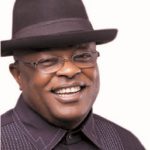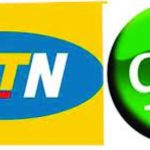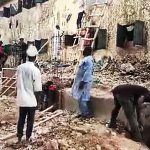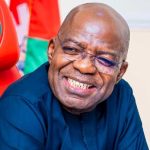Broadband Council pushes for Smart States and 50% 3G-coverage
 The Broadband Council is pushing for increased 3G coverage to 50% of the Nigerian population by 2015. This was one of the outcomes of the 4th Broadband Council meeting held in Lagos on the 30th of May 2014. The meeting coincided with the first year anniversary of the approval of the Broadband Plan by President Goodluck Ebele Jonathan. In reviewing progress against the broadband plan so far, Council highlighted that it had been slower than anticipated, though Broadband penetration has gone up from 6 to 6.8% since implementation commenced. All members agreed that sustained efforts needed to be maintained to increase the penetration rate in accordance with the five year target of the Broadband Plan as full 3G rollout would lead to increased mobile broadband penetration for all.
The Broadband Council is pushing for increased 3G coverage to 50% of the Nigerian population by 2015. This was one of the outcomes of the 4th Broadband Council meeting held in Lagos on the 30th of May 2014. The meeting coincided with the first year anniversary of the approval of the Broadband Plan by President Goodluck Ebele Jonathan. In reviewing progress against the broadband plan so far, Council highlighted that it had been slower than anticipated, though Broadband penetration has gone up from 6 to 6.8% since implementation commenced. All members agreed that sustained efforts needed to be maintained to increase the penetration rate in accordance with the five year target of the Broadband Plan as full 3G rollout would lead to increased mobile broadband penetration for all.
To support its push for full 3G rollout across the nation, an Access Gap Analysis of the coverage of the country has been completed by the USPF. The purpose of the Access Gap study by USPF is to ascertain/determine priority for unserved and underserved areas and direct appropriate investments to these areas. This will inform plans for addressing under-served and unserved areas across the country.
The USPF’s soon to be published Access Gap Analysis shows large population clusters of 500,000 and more still requiring coverage. This significant work by the USPF has given real empirical data to the issue of which areas of the country have connectivity. The members of the council commended the work of the USPF in this area. This work would feed into prioritised areas for USP funds.
The Council also extensively deliberated on progress made with the Smart States initiative and getting states to reduce or remove ROW charges and other related fees. Five states have so far indicated interest in being Smart States. They are Gombe, Bayelsa, Ondo, Anambra and Katsina. Lagos and Cross Rivers state are already considered well on their way to being Smart City States. Abuja is also in a great position to be Smart
The Chairman of the Council and Minister of Communication Technology, Dr (Mrs) Omobola Johnson, said that the Smart states drive to engage governors and relevant authorities at the state and federal level to address the issue of multiple taxations will accelerate the roll out of critical infrastructure across Nigeria. The Lagos state government had earlier signed an agreement with the Association of Licensed Telecoms Companies (ALTON) to reduce the cost of RoW from 3000 naira to 500 naira per meter, a significant reduction of 85%. The aim of the Smart States initiative is to ensure that effective measures are adopted to remove arbitrary charges and eradicate multiple taxations across the nation. Previous research by the Ministry revealed that ROW charges, levies and taxes contributed about 70% to the cost of rolling out infrastructure in several states.
Also, a collaborative agreement between the Ministries of Communication Technology (including the NCC) and Environment (which includes NESREA) has been gazetted and is now in place to help ease bottlenecks concerning base station deployment. An MOU that outlines the roles and responsibilities of each department with respect to base station deployment and approvals of Environmental Impact Assessments necessary for effective service delivery in the telecom sector is now operational. In addition, the timeline for the processing of Environmental Impact Assessment (EIA) reports will no longer exceed 90 days, another obstacle often highlighted by Operators.
The push by the Council for the release of more spectrum by the NFMC and NCC is yielding positive results. The Nigerian Communications Commission successfully auctioned the 2.3GHz spectrum band to Bitflux Communications in February this year. The auction is in line with the mandated timeline of the broadband plan. The release of complementary Infraco licenses will follow shortly. NFMC continues to work closely with the NBC and NCC with regards to digital
dividends and the release of 2.5GHz and 2.6GHz planned for later this year.
Incumbent occupants of the spectrum have been engaged and a mode of
transition is being worked out.
The Council also deliberated on the Cybercrime Bill and work done so far on TV White Space committee. The Cyber Crime Bill passed through the First Reading in the National Assembly in the first quarter of 2014, and the Bill is awaiting Second Reading in both the Senate and House of Representatives. The NFMC has approved the piloting of TV whitespace technology in Nigeria and the pilot will commence with 6 companies offering services in unserved and underserved areas. Pilots will be for one year under licensing from NCC. Purpose of the pilot is to establish the TVWS solution as a viable rural access technology for the Nigerian context.
Recall that the Broadband Council had after its third meeting on the 17th of February launched an awareness campaign that will communicate the transformational benefits of broadband to all Nigerians to encourage its use and adoption and inform where broadband is also accessible in local communities. The Campaign tagged ‘’Connected Nigeria, Connected Nigerians’’ is on-going and will raise awareness and disseminate information of the benefits of Broadband and how broadband is creating economic and social value for Nigerians. The Council has also inaugurated a Media Advisory Council to help drive the broadband awareness campaign.
These achievements are in line with the President Goodluck Jonathan’s goal of seeing broadband penetration increase five-fold by 2017, and the action items stipulated in the Broadband plan. The Broadband Council was inaugurated on the 16th of July, 2013 and is made up of 19 members chaired by the Honourable Minister of Communication Technology, Dr (Mrs) Omobola Johnson. The Council is charged with the responsibility of working on implementation modalities for the approved Nigerian National Broadband Plan 2013 – 2018.








